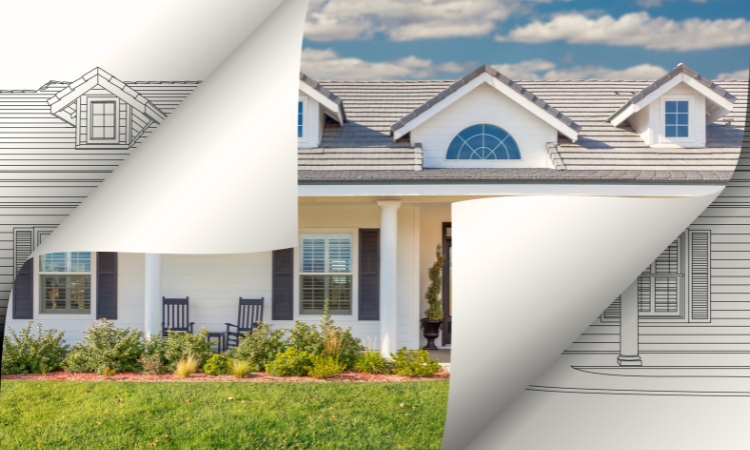House flipping is currently one of the hottest real estate investment trends. The idea of purchasing a run-down property at a steal, putting in the time and money to bring it up to par, and then selling it at a profit seems like a pretty straightforward endeavor. People who have actually engaged in this strategy may beg to differ, however. But what about house flipping out of state? Flipping can be risky – and the risk increases exponentially if you’re flipping out of state.
Find a property in need of some TLC, invest in remodeling it, and sell it for more than you put into it – the flipping formula sounds like a winning one. Those who are experienced in the process, like Justin Pierce, who wrote an article about flipping for The Washington Post, understand that this investment strategy isn’t as simple as it seems.

One of the largest risks pointed out in the article is the long list of expenses that begin to mount the moment you sign a contract on a home you plan to flip. Right out of the gate, you’ll need to take care of realtor fees. The remodeling process means paying for labor, materials, and inspections. You’ll also have to cover the cost of getting the property appraised. State and local transfer and recording charges will also eat into your bottom line, as well as income tax on any profit you make. In addition to all of this, you’ll be responsible for paying property tax for the time you own the home.
The cost of flipping can run even higher if remodeling takes longer than expected or is more expensive than the initial estimate. Another factor that can decimate your bottom line is the time it takes to sell. If a property fails to sell in short order, monthly mortgage payments can quickly add up. These risks can make flipping a particularly dangerous real estate investment mistake.
If flipping is a gamble, planning to flip out of state raises the risk exponentially. First, people who purchase investment properties out of state are often buying in markets with which they’re unfamiliar. This makes it difficult to determine if a property is a good deal, how much should be spent on improvements, and if the home will sell for your target price.
Some investors who purchase out of state buy a property sight unseen, or they may purchase it without taking the time to run through proper inspections to determine what repairs are needed to bring the home up to date. This can prove costly – especially if the home is in a neighborhood where no amount of remodeling will help it sell for a profit or if it has costly problems that are only unearthed once the remodeling process begins.
The inherent risks of property flipping have caused many investors to opt for purchasing turnkey properties as a long-term strategy to generate wealth. Rather than buying a property with an aim to improve it and sell it, turnkey investing involves rental-ready, buy-and-hold real estate that can generate passive income right away. In addition to creating cash flow through monthly rent, these turnkey properties often increase in value over time.
To find the best properties – either locally or out of state – savvy investors often partner with a turnkey real estate provider. These firms are skilled at helping their clients fully vet potential properties, which is such an important part of the process that U.S. News & World Report highlighted it in a May 2019 article on turnkey properties. A turnkey real estate partner can also assist you with navigating the purchase process and even managing the rental in order to handle tenants, maintenance, and repairs. This strategy not only helps generate maximum income with minimum day-to-day involvement for the investor; it also helps remove many of the risks that come with flipping…and particularly flipping out of state.